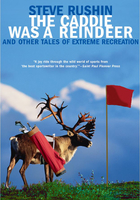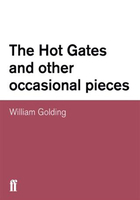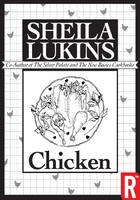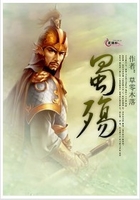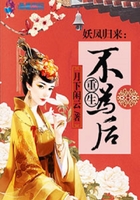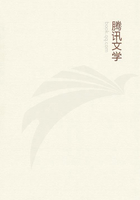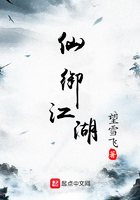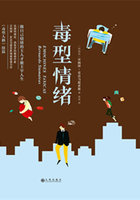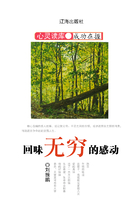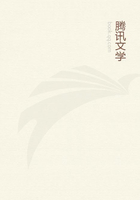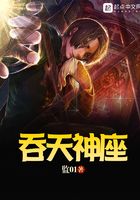On the morning of December 22, 2010, I found myself standing backstage in an auditorium at the Department of the Interior, waiting for the president of the United States. Barack Obama was on his way to sign into law the bill that would end the discriminatory policy known as Don't Ask, Don't Tell (DADT). For seventeen years, brave men and women who had been serving their country in silence had been fighting to end this ban. As president of the Human Rights Campaign, the largest LGBT civil rights organization in the country, I had the privilege of leading the organization's efforts and working alongside President Obama to get this landmark legislation passed into law. On that historic morning, I would have a few minutes backstage to chat with the president before I took my seat among hundreds of witnesses, including LGBT activists, journalists, bloggers, and service members most impacted by the discriminatory policy.
When President Obama walked in, he came right up to me and gave me a hug. With his hand on my shoulder, he said, "Wow, even I didn't get kicked in the teeth on this one as much as you did. And I'm always the guy who gets kicked in the teeth in tough legislative fights." The bill to repeal Don't Ask, Don't Tell had come perilously close to failing more than once during the previous few months. As a result, there had been a great deal of anger within the LGBT community-anger that had been brewing since 1993 when DADT had been put in place. More recently, this anger had been directed at me and the other activist leaders who were working hard with the Obama administration to get this bill passed. To be honest, the moment of repeal was bittersweet for me. Even though I was surrounded by people, I was standing alone. The truth was, for the past few months I had spent just as much time responding to negative attacks from my own community as I had working the halls of Congress.
I had heard the anger and frustration from the LGBT community for as long as we had been working toward repeal. However, I was able to dissociate from it because I had a plan: I was resolved to channel my own anger toward a singular strategic end. I always knew that we would prevail, that DADT would be repealed-although I didn't realize it would be just hours before the end of the 2010 congressional session and days before the holiday break. I was aware that not everyone in the LGBT community agreed with my strategy, but luckily there were many people who helped me achieve the ultimate goal. Others expressed their fury in unproductive ways. Although dealing with all of this anger didn't always feel good, and the path forward often seemed confusing and frustrating, my team remained laser focused on the six senators we needed to turn. Our strategy emphasized understanding what was at the heart of their resistance to supporting the bill. We spoke directly to that resistance in an incredibly effective way. Our campaign spoke to their concerns, not ours. Ultimately, the plan worked.
Earlier in the day, one of the many LGBT bloggers approached me. He had been unrelenting in his criticism of HRC's work; I believed he was stoking the fires of the community's collective anger to keep his readership up. Instead of congratulating me, he simply said, "Well, you must feel vindicated." Even on this day, when the bill would finally be passed into law, this blogger couldn't let go of his anger. But I wouldn't let him spoil my day. As Marine Staff Sergeant Eric Alva walked onto the stage in anticipation of the president signing the bill, he was beaming. Staff Sergeant Alva gave me the thumbs up, and I saw pure joy on his smiling face. In that moment, I knew that as a community we had channeled our collective anger into something transformative.
During this particular legislative fight, I learned a lot about what worked and what didn't when it came to getting what I wanted for my community and myself. While much of the resistance we face throughout our lives has the potential to make us angry, it's what we do about that anger that determines how quickly and effectively we can overcome the obstacles and get to the place we want to be. Today, more than five years later, I reflect on what I learned about confronting injustice, dealing with the understandable anger that is a valid response to injustice, and channeling this passion toward creating positive change.
I came to public service with a very simple goal: to help people, to make their lives better in significant and tangible ways. I have a record of accomplishments that has helped women, LGBT people, and others who have been marginalized or discriminated against become more powerful both within the workplace and in their individual lives. Whether it's helping to elect people to office who eventually helped to pass the Lilly Ledbetter Fair Pay Act (2009), which states that everyone should make the same amount of money regardless of gender, or the Matthew Shepard and James Byrd Jr. Hate Crimes Prevention Act (2009), which protects us all from violence, I learned that there is a savvy, pragmatic, and replicable way to have your voice heard and get what you want. How was I able to deliver these tangible results, to create such significant social change for all Americans? I relied on fundamental yet profoundly important life lessons that were instilled in me throughout my upbringing as well as during my early years of professional development. In this book I want to share these lessons, so you can create your own moments of change in your personal and professional relationships.
I describe my upbringing as relatively average. I grew up in southeastern Massachusetts in an incredibly homogeneous small town. My parents were teachers who belonged to a union: they created a progressive, democratic household, typical of middle-class Massachusetts in the early 1970s. My father, a strict Italian American, died when I was thirteen. After that, my mother raised my siblings and me on her own. Like so many others, for me high school was not the be-all and end-all; I was often sad and scared. Despite being on the track team and in student government and having good friends, like many young gay men, I was occasionally bullied. Some kids would call me names, throw things at me as I walked through the halls, or speak to me in a mocking feminine voice. Although I was never in a situation where I feared for my own safety, I searched for ways to survive and just make it through. In some ways, I relied on the New England sensibilities my parents had instilled in me-suppress your anger, keep a stiff upper lip, be tough, don't let your emotions show.
In other ways, I did what many gay youth still do: imagine a future far away from that high school environment. In my mind the story of my future success would take place in a glamorous, big urban city filled with interesting and diverse people doing interesting and diverse things. I often thought, Once I get out of here, I'm never looking back. I'll show them who's going to end up the real success story. Someday, I'll get my revenge. Without really knowing it, I was taking the long view of life. I was also taking the long view with my anger. I had disciplined myself to channel my anger to propel me out of where I was and put me where I wanted to be. I didn't suppress or ignore my anger-I never have-but I've always been very clear about what I've wanted for myself and for the people I've represented. Anger for the sake of anger, or rage that is directed at nothing other than feeling furious, gets you nowhere. I never let my anger keep me from losing sight of the ultimate goal: to get out and to one day make a difference.
When it was time to go off to college, I was attracted to Boston University, drawn to the danger, energy, and excitement of the big city. Boston was nothing like small-town southeastern Massachusetts. I knew that I would meet interesting and diverse people because the world goes to school in Boston. It was exactly what I had envisioned throughout those long high school years. BU was the perfect choice for me. I could have come out during college, but I didn't. It wasn't so much that I was hiding; my sexuality was simmering in the back of my mind. I was attracted to men, yet I had a girlfriend. I was trying to fit into traditional male roles that I'd grown up with. I wasn't exactly being true to myself, but I was happy and carefree. For the first time in a long time, I put aside my anger about the occasional injustices I experienced in my own world.
In my junior year of college I landed the internship: working in the Massachusetts State House in the Governor's Office, for Michael Dukakis, who was running for reelection as governor with an eye toward a presidential bid. In the governor's scheduling office, as part of his personal staff, I vetted all the invitations that came in for the governor and the First Lady, Kitty Dukakis. I immediately connected with the energy in the State House. I thought it was just the coolest thing in the world. Mike Dukakis wasn't just any governor. He was the progressive governor of a progressive state who was going to be running for president. I was surrounded by amazing, smart, passionate people. Some of them had just graduated from Harvard Law School and could have had any job they wanted, but they chose state government because they believed in reforming the healthcare system or helping to revive the state's economy.
Although I didn't set out to be in public service or to be a role model or a leader, I found my way in and I embraced it. I worked hard and loved it. I made myself indispensable in the governor's office, and when I graduated from college two years later, they offered me a full-time paid position: sixteen thousand dollars a year. It was like a dream come true. There I learned that power could come with compromise and that being in the center of the activity as an integral part of a team working toward a common goal was inspiring and energizing.
Right about that same time I started focusing on myself, coming into some awareness of who I really was: a gay man. I moved in 1989 into the South End, an almost exclusively gay Boston neighborhood. I reconnected with a hometown friend, Jack Gorman, who introduced me to all of his friends. During those years, if you weren't out at work and you weren't out to your family, there was a tribalness to being gay, where your intimate circle of friends provided all of the support and love that you feared your family might not provide. My neighborhood friends-a group of seven guys-became my tribe. We lived within blocks of each other. We went to work in the morning but talked on the phone throughout the day about our evening and weekend plans. We met at the gym after work, had dinner together, socialized, and made our summer pilgrimage to Provincetown (a coastal Massachusetts vacation destination for the LGBT community). If someone in our tribe didn't have money, someone else lent them money; if one of us didn't have a place to live, the tribe would offer shelter. I felt unconditional acceptance and support, empowered to be out at work and out at home. These days were a joyous celebration: I finally felt like I belonged.
Then there was AIDS. AIDS changed everything for us. For the first time in a long while, I felt anger but also fear. I was just embarking on a new chapter in my life, happily living as an openly gay man, and the AIDS epidemic was affecting everyone I knew and cared about. I became very committed, as most people in the LGBT community were, to raising both awareness and money to support the fight. I came to understand the greater importance of my work in public service. The community was called upon to do many things. Hospitals all over the country were turning gay men away, so we had to channel our anger over this injustice to find a solution. In response, the community galvanized to create such organizations as the Gay Men's Health Crisis (GMHC), the world's first and leading provider of HIV/AIDS prevention, care, and advocacy.
Other men and women were mobilizing their anger in a different way, through direct-action, grassroots advocacy organizations like ACT UP (AIDS Coalition to Unleash Power). From the outside, ACT UP looked to be a manifestation of anger, fueled by rage and best remembered for bringing attention to the injustices of the AIDS epidemic. On the surface, the organization appeared to be a leaderless anarchist network, because their activities often involved disruptive civil disobedience. They were known to chain themselves together across bridges to stop traffic, forcing people to pay attention to their message. Other tactics were aimed at pharmaceutical companies or government agencies that had turned a blind eye to this disease that was killing thousands.
Yet even while their rage was boiling, at its center ACT UP had a laser sharp and brilliant strategic focus. Each and every act of passionate civil disobedience was undertaken for a reason, with a strategic goal in mind. Because people were dying every day, including many members of ACT UP, those heroic warriors simply didn't have the luxury of projecting anger for the sake of being angry. They understood keenly that in order to answer a higher calling, their moral obligation was to express their fury and rage to create change. And it worked. Regarding research funding for understanding the disease and developing effective treatments, access to clinical trials, and other key measures of progress in fighting the HIV/AIDS epidemic, the needle was in fact moved. Today, untold numbers of people continue to live because of these brave activists on the frontlines in the 1980s and 1990s.
Another way that the LGBT community galvanized during this time was through their involvement with the Human Rights Campaign (HRC). Formed in 1980 by Steve Endean, the organization existed solely as a progressive political action committee to build a donor base to influence elections and the legislative process. They called themselves the Human Rights Campaign, in part to reach a more expansive audience but also because frankly back then having an envelope in your mailbox from the Human Rights Campaign was less problematic than receiving an envelope that had the word "gay" on it. But make no mistake: the goal was to advocate for and protect gay, lesbian, bisexual, and transgender Americans. Playwright Tennessee Williams wrote the organization's first fundraising letter in 1981. Today, HRC is the nation's largest LGBT advocacy organization. As the AIDS epidemic became a reality, HRC's first fight was to help elect members of Congress who would support decisions around funding and research to find a cure. For the next ten years, that is all the organization did.
After Dukakis lost his bid for the presidency, I left the Massachusetts State House and in 1990 went to work for Barney Frank, the first openly gay man in the U.S. House of Representatives. Even against the backdrop of AIDS, I was living the life I had imagined for myself during those dark days of high school. I left Congressman Frank's office in 1993 to work at the newly formed political action committee EMILY's List. My friend Mary Beth Cahill was the political director and she told me to pack up my car and come along. I didn't know much about the group, but it didn't take me long to realize that I had arrived at a very special place.
EMILY's List was started in 1985 by Ellen Malcolm and a group of women who had pushed for the Equal Rights Amendment and were leaders in the reproductive rights movement. Their mission is to raise money and elect pro-choice, Democratic women candidates to office. Their strategy was to financially support women early on in their political career by creating letter-writing campaigns and raising money nationally. It was a revolutionary idea at the time: the notion of raising small amounts of money from lots of women across the country. Because of the strength and commitment of the women involved, the amount of money these candidates were able to gather for their initial campaign filings more than often changed the dynamics of the race. Women with lots of early money were taken more seriously, becoming successful at raising even more money from the typical donors in their own home states and districts. Malcolm coined the phrase upon which the organization's name is based: "Early money is like yeast [EMILY]: it makes the dough rise."
My arrival at EMILY's List followed 1992's historic Year of the Woman, when more women had been elected to Congress than at any other time in history. The energy of that election cycle was fueled by the public outcry in support of Anita Hill, an African American law professor from Oklahoma. Hill had testified in opposition to Clarence Thomas before the Senate Judiciary Committee during his Supreme Court nominating hearing; she testified that Thomas, as her supervisor at the Equal Employment Opportunity Commission, had sexually harassed her. Many on the white male committee treated Hill with disrespect and hostility, enraging many American women, who turned out in record numbers later that year to vote for female candidates. These women channeled their disgust and anger into action, ensuring that in the future, Congress (and subsequently its committees) would be more representative of the electorate. Their success-and the ability to channel their rage into the electoral process-inspired me to think seriously about how I might be more effective as a change agent for the LGBT community.
In 2004, Elizabeth Birch, who had served as the legendary head of HRC for almost a decade, decided to leave the organization. She was replaced by Cheryl Jacques, a former state senator from Massachusetts. It soon became clear that Jacques wasn't a good fit for HRC. At the time I wasn't looking for a new job, but I found myself in the same Boston hotel as the HRC staff during the August 2004 Democratic National Convention. Elizabeth and her partner, Hilary Rosen, were sitting in the hotel lobby. I knew them through their involvement with EMILY's List. One of them asked, "How do you think things are going at HRC?" Never one to mince words, I told them exactly what I thought: Frankly, as an HRC supporter, I was angry. The LGBT community had just won the fight for marriage equality in the Massachusetts Supreme Court the year before. As a result, thirteen states had put constitutional bans on marriage equality on their ballots during the 2004 presidential election. HRC had put all its efforts and resources into the marriage fight in those thirteen states; consequently, the organization wasn't offering the community any additional paths toward achieving other forms of LGBT equality.
HRC had been the fastest, most impressive, social change organization in the country, but now it needed to communicate an agenda broader and more diversified than the battle in those thirteen states. I told Elizabeth as much. If we lost every one of those thirteen states, it would appear as if HRC had no other reason to exist. On Election Day in 2004 we did lose, and those losses became the measure of how the public judged HRC's effectiveness. In the aftermath of those elections, the LGBT community was actually blamed, even by some of our allies, for the Democrats' loss of the White House. Someone at HRC must have heard about my impromptu chat with Hilary and Elizabeth that day, because after the election I was called in to interview for the position of HRC president. I got the job.
It quickly became clear to me that the anger in the LGBT community was intense. There was just as much frustration directed toward HRC and the ineffectual leadership that had come before me as was projected at those we were supposed to be fighting. I had walked right into the middle of a complex, contentious scenario. At the time, LGBT issues were effectively the third rail of American politics. HRC had plenty of money, but we weren't spending it effectively to create change on the individual or societal level. As president, I had to address the community's anger, then figure out how to communicate a more diversified agenda. I wanted to present a more multidimensional, diverse portfolio of goals that, when achieved, we could measure as successes, so the whole ball game wasn't hung up on one important yet single issue: marriage equality. Our constituents needed to know that HRC was going to continue to fight for full marriage equality while also fighting for equality in every institution we could-the workplace, schools, hospitals, religious settings, and so on. Change anywhere would ignite greater change everywhere.
I also had to figure out how to present HRC to elected officials and politicians who had the potential to help us. They needed to see us putting our anger aside, to become a much more sophisticated ally. We needed a strategy that allowed us to advance our agenda with both our friends and our enemies. After the 2004 election, the White House as well as Congress was controlled by the Republican Party, whose leadership was unwilling to move any measure that would advance LGBT equality. In 2006 the Democrats took charge of the House and the Senate; we now had the opportunity to advance our long-sought-after legislative goals.
During my eight-year-tenure with the Human Rights Campaign, I was able to take the organization from a deeply challenged body to a well-respected and effective political powerhouse. HRC oversaw the discriminatory Federal Marriage Amendment defeated in 2006 and the passage of marriage equality in eight states. Working alongside Judy and Dennis Shepard, we passed the Matthew Shepard and James Byrd Jr. Hate Crimes Prevention Act in 2009, after eleven long years of trial and effort. In 2010 we were able to repeal the discriminatory Don't Ask, Don't Tell policy. We achieved other smaller and lesser-known legislative and administrative victories that made significant change for LGBT people and their families. These successes were the result of a community-wide effort; together we channeled our collective passion over injustice, hatred, and violence to achieve the "impossible": full equality under federal law.
Other initiatives included launching HRC's Religion and Faith program to provide innovative resources for LGBT and supportive people of faith who want to stand up to those who use religion as a weapon of oppression. We created the All Children-All Families program for adoption and foster care agencies across the country. The Welcoming Schools initiative provides administrators, educators, and parents/guardians with resources to create welcoming and respectful learning environments for all families. HRC's Healthcare Equality Index rates U.S. healthcare facilities on all policies and practices related to the LGBT community, including patient nondiscrimination, visitation, decision making, cultural competency training, and employment policies and benefits. Today HRC has more than one million members and supporters, including professional athletes, actors, television personalities, musicians, politicians, and countless straight allies.
Again, the successes of the Human Rights Campaign were not accidental. We implemented real tactical approaches to create social and legislative change, and I share these tactics throughout this book. Other movements for social change have not had nearly the impact and success HRC has enjoyed. Many such organizations now seek my guidance about the lessons I learned and the strategies I employed while at the helm of HRC. My success was the result of using incremental building blocks to motivate and cause palpable cultural change. These building blocks included channeling anger into action to achieve positive change; finding common ground with unlikely allies; making policy decisions based on shared humanity; knowing when to compromise and recognizing when you cannot give up; building coalitions; developing patience; and creating consensus. While these might not sound like radical concepts, when these sometimes counterintuitive ideas are implemented in specific and measurable ways, they can bring about profound societal change or minor personal changes, such as garnering a promotion. These processes have worked for me in the workplace, in my home life, and on the floor of the U.S. Senate. I know that these strategies can be equally effective for others.


